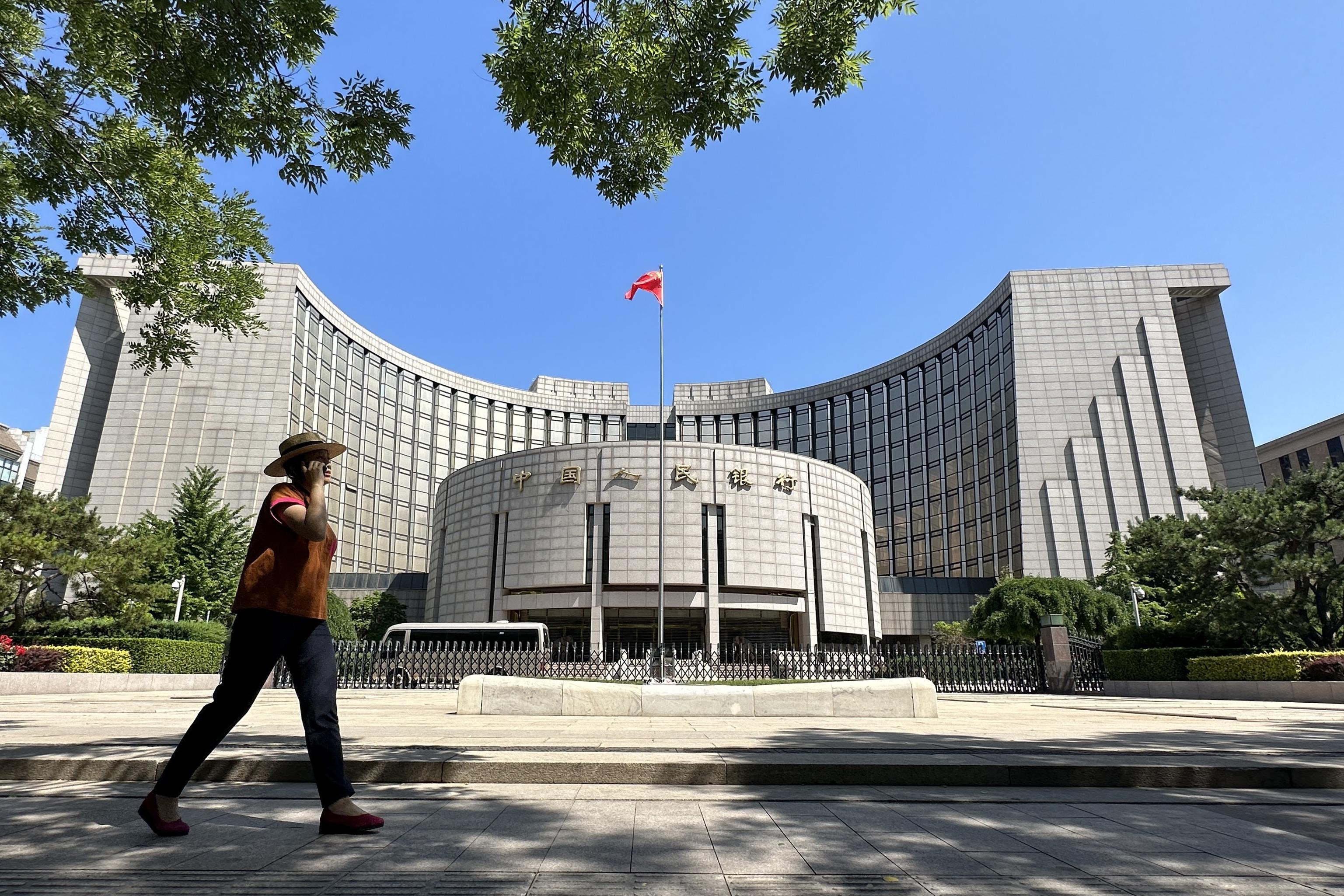Economists suggest policy support, voucher issuance to boost spending confidence
 A pedestrian walks past the People's Bank of China, the country's central bank, in Beijing on May 22. (PHOTO / CHINA NEWS SERVICE)
A pedestrian walks past the People's Bank of China, the country's central bank, in Beijing on May 22. (PHOTO / CHINA NEWS SERVICE)
Though the recent decline in deposit rates is seen as part of the country's efforts to energize consumption, economists have divided thoughts on how far the move will push consumption. Going forward, experts are calling for more forceful and prompt measures to boost consumer confidence.
Gao Ruidong, chief macroeconomist at Everbright Securities, said that the current high level of deposits and weak household sector loans are primarily due to a decline in household risk appetites and their tendency toward precautionary savings against uncertainties.
"Ultimately, the restoration of consumer confidence can only rely on improvements in employment and income expectations," he said.
A research report issued by GF Securities on May 28 showed that the tendency of households to keep their money in saving accounts instead of spending it is still surging. The value of outstanding household bank wealth reached 26.6 trillion yuan ($3.71 trillion) as of May 26, pointing to an increase of 400 billion yuan compared to April 30. Such value had already seen a significant increase of 1.2 trillion yuan in April.
Robin Xing, chief China economist at Morgan Stanley, said it will be challenging to push for notable consumption momentum and more policy support is needed.
"Structurally, consumption growth is unlikely to return to the pre-COVID-19 levels. We expect the potential growth for private consumption will be 4.8 percent for the year 2024, which is slightly lower than pre-COVID-19 trend," he said, adding that the current uncertainty in employment is part of the reason behind the bumpy recovery in consumption.
More direct and prompt policy support is therefore required to fuel the consumption market and more effectively boost this year's growth, experts said. Gao suggested that a large-scale government issuance of consumer vouchers could have a more direct impact on the retail spending than a lower deposit rate.
"Since the employment situation among young people remains severe and the willingness of spending among households remains unstable, the consumption sector may see an uneven recovery this year," he said. "We believe that a large-scale issuance of consumption vouchers is feasible to quickly drive growth."
He suggested that consumption vouchers worth 300 billion yuan be distributed to households.
"Such an amount of vouchers will generate an additional 1 trillion yuan in consumption, contributing to a 0.62 percentage point increase in GDP growth," Gao said.
He said that the stimulus effect of issuing consumption vouchers can be significantly higher in underdeveloped regions than in developed regions. In addition, the issuance of these coupons can lean more heavily toward low-income and unemployed groups, who can use the coupons for daily essentials in retail and living.
Targeted consumption vouchers can be distributed in sectors like dining, accommodations, tourism and autos, catering to the specific consumption needs of different groups," Gao added.


